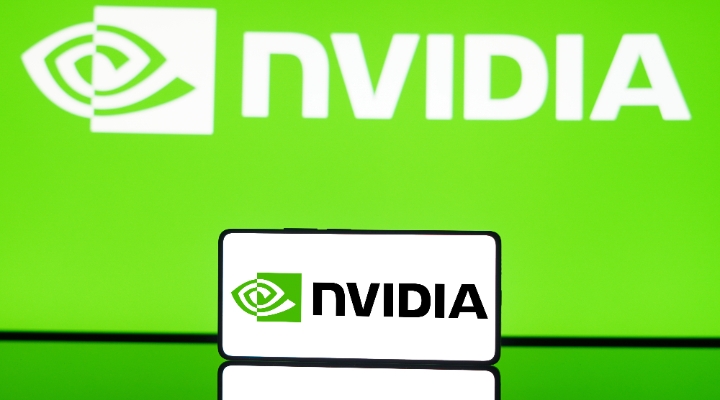
Fundsmith is launching a new closed-end fund next month, investing in global small and mid-sized companies. The investment trust will be called Smithson and will invest in companies too small for Fundsmith Equity to hold, typically between £500 million and £15 billion in market capitalisation. The trust will be run by Simon Barnard and Will Morgan, who joined Fundsmith in 2017 from Goldman Sachs. Terry Smith will oversee the strategy in his role of chief investment officer of the firm.
Smithson is seeking to raise £250 million, with Smith investing £25 million himself, alongside a further £5 million invested by Fundsmith employees.
The average company size in the trust will be £7 billion – the equivalent of Sainsbury's (SBRY) supermarket in the UK market, or Xerox Corporation (XRX) in the US.
“While the companies we will be investing in are much smaller than those found in Fundsmith Equity, they are not micro stocks,” says Barnard. “We will be focused on mid-sized companies because we prefer companies that are already dominant in their sector or niche – companies that are already winners. We are investing for the long term, taking a buy and hold approach, going for mid-sized companies means the risks are reduced compared to small cap.”
Of the 83 companies in the investable universe, 50% of them are listed in the US with a further third in listed in Europe. The remainder are Japanese, Australian and New Zealand-listed companies.
Of the two managers, only Barnard has experience managing money, says Morningstar senior fund analyst Pete Brunt.
“He managed a global consumer mandate from January 2012 to July 2017, and then GS Goldman Sachs Global Millennials Equity from January 2016 to July 2017. The latter had a strong growth bias, had roughly 50 stocks and but only two stocks overlap with Fundsmith Equity,” says Brunt. “It also had more of a large-cap tilt rather than mid-caps, which is the focus for Smithson.”
Launch a Response to Investor Demand
Smith set up Fundsmith in 2010, with the tagline “the only fund you will ever need”. When he launched the Fundsmith Emerging Equity Trust (FEET) in 2014, he responded to the question ‘why a second fund?’ by revealing that the launch was driven by investor demand and liquidity constraints associated with the £17 billion Fundsmith Equity. Fundsmith has £18 billion in total assets under management.
“The emerging markets companies are ones that are in the same industries, but in emerging markets that are much less liquid than the ones that are multinationals that we invested in the main Fundsmith Equity fund,” he said.
It is a similar story today – Smithson is being launched in part due to investor demand.
“Before we had a name for the trust I called it ‘X made me do it’, such was the demand from one particular institutional investor,” said Smith.
While Smith is quick to impress Fundsmith Equity is "not too big", he recognises that the size of the fund makes investing in anything but the very largest companies across the globe difficult.
“One of the things we have monitored since 2010 is companies which outperform the Fundsmith Equity fund. The consistent characteristic of all of the companies that outperform the fund are that they are small or medium sized," he said.
"There are plenty of firms with fundamentals we like - such high return on capital - which are too small for us to invest in the main fund."
Over the past 20 years, global small sized companies have outpaced global large caps – with an annualised return of 9.3% to large caps' 6.2%. The firm says it is seeking to exploit this performance differential, along with the comparative lack of analysis in the sector, making it easier for Fundsmith to “to take advantage of more discrepancies between the share price and valuation”.
The trust will charge 0.9% a year, linked to the trust's size. There will be no launch fee.
Managing the Fundsmith Factor
Smith recognises that companies associated with the firm, and himself, attract a certain level of media and investor attention. Will this be a problem for smaller companies where the price dial is more easily moved?
"Smaller companies are more volatile by nature," says Smith. "Alongside the higher growth rate, they are more susceptible to macro events. They are more sensitive. The thing to bear in mind - not to be dismissive of that factor - is a fund manager needs to be more emotionally stable as we slide down the cap scale."
Smith says he will be calling on his experience at stockbroker Collins Stewart, which - when he joined in 1992 - was a more specialist small and mid-cap broker.
However, he is quick to caveat: "That doesn't mean it won't go wrong, something may blow up in our face."
Who is Smithson Up Against?
Morningstar senior fund analyst David Holder says that if Fundsmith pursue their usual bias towards growth-style stock picking, this would put the Smithson trust in the same bucket as Edinburgh Worldwide (EDI) – although Holder notes that the average holding market cap of £7 billion is double that of Edinburgh’s typical portfolio constituent.
The Bronze Rated Edinburgh Worldwide has annualised returns of 33% over the past three years.
In the global small-cap category, Morningstar analysts positively rate F&C Global Smaller Companies (FCS) and Law Debenture (LWDB). However, Holder says these trusts deviate considerably in style, with the Silver Rated F&C favouring a value approach and Silver Rated Law Debenture has an unconstrained multi-cap, contrarian approach.
































